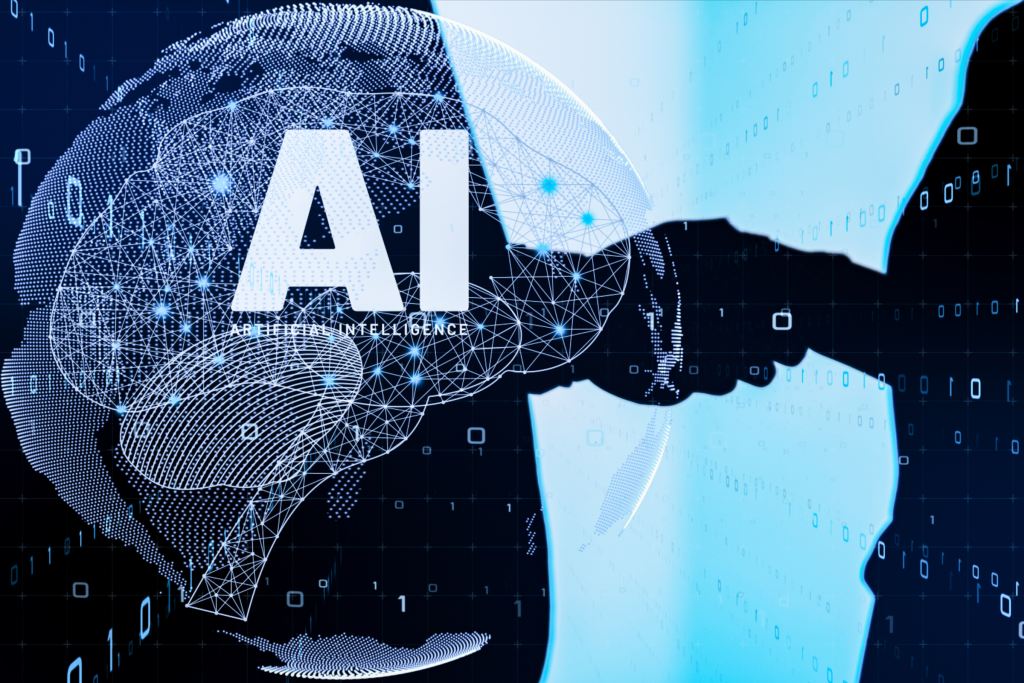Artificial Intelligence (AI) in business is revolutionising the way companies operate, driving efficiency, innovation, and smarter decision-making. From automating repetitive tasks to enhancing collaboration and customer service, AI-powered solutions are reshaping modern workplaces. As organisations integrate AI into their workflows, they must balance its benefits with ethical considerations and workforce adaptation. While AI presents immense opportunities, its adoption also raises important questions about its impact on employees and business strategies.
AI Transforming Business Productivity
The use of AI in business is rapidly expanding as companies seek ways to improve productivity and reduce operational inefficiencies. Many organisations are turning to business AI solutions to automate repetitive tasks, optimise workflow management, and generate data-driven insights. Rather than replacing human employees, AI is being leveraged to augment their capabilities and enable them to focus on higher-value tasks.
AI Enhancing Efficiency, Decisions, and Experience
Enhanced Efficiency and Productivity
AI-powered tools, such as Monday.com AI, can automate routine administrative tasks, allowing employees to dedicate their time to strategic and creative endeavours.
Improved Decision-Making
AI-driven analytics provide real-time insights that help businesses make informed decisions quickly, reducing human error and improving outcomes.
Personalised Employee Support
AI can assist employees with task prioritisation, scheduling, and workflow management, leading to a more structured and productive work environment.
Cost Savings and Resource Optimisation
Businesses can reduce operational costs by automating mundane tasks, enabling employees to focus on work that requires human judgement and interaction.
Enhanced Customer Experience
AI-driven chatbots and virtual assistants improve customer service by handling queries efficiently and providing quick responses.
AI in the Workplace: Adoption and Concerns
A new international survey conducted by workplace management platform Monday.com, the World of Work report, sheds light on how businesses perceive and implement AI in the workplace. The survey tagged 3,700 respondents from Australia, the USA, Mexico, Brazil, France, Germany, and the UK.
The findings highlight key trends and concerns related to AI adoption.
Employee Sentiment Towards AI
The survey identified Aussie employees with various concerns on how AI deployment will affect their tenure. When it came to adopting AI systems, the demographics showed signs of varying rates of adoption. Millennials ranked well in the survey, with 49 per cent being open to using them and another 80 per cent expressing hope of better performance with an AI construct as assistant. Although Gen Zers are often seen as the most tech-savvy people nowadays, the survey revealed they are far behind GenXers and millennials in learning the systems.
There were also concerns about whether human workers will lose their roles with more AI units deployed. From the respondents, the survey tagged AI as a trigger for job displacement amongst 42 per cent of Gen Zers, but more than 30 per cent of Gen Zers, Gen Xers, and millennials share the same concern, as do 20 per cent of baby boomers.
While many employees express concerns about AI replacing jobs, the survey reveals that most workers view AI as a tool that enhances their roles rather than threatens them.
AI Adoption in Australian Businesses
Australian companies are increasingly adopting AI-powered workplace solutions to improve collaboration, automate project management, and drive innovation. Speaking to NewsCorp Australia’s Blair Jackson, Monday.com vice-president and APJ GM Dean Swan said the slow adoption speed of younger employees puts the onus on businesses to train them further on how to use AI systems in their duties.
The Human Factor in AI Adoption
The survey underscores the importance of maintaining a human-centric approach to AI implementation. Employees value AI tools that assist them in their roles while preserving human oversight and decision-making capabilities.
Managing AI Adoption with Ethical Strategies
Despite the benefits, AI adoption in business comes with challenges that must be carefully managed. Companies must ensure that AI serves as an enabler rather than a replacement for human workers.
Transparency in AI Usage
Businesses should communicate clearly with employees about how AI will be used and how it will impact their roles.
Employee Training and Upskilling
Organisations must invest in training programmes to help employees develop AI-related skills, ensuring they remain competitive in an evolving job market. However, it will depend on selecting an AI system with easy-to-use controls and efficiency, and a high level of data security, given recent cybersecurity concerns around certain AI platforms.
Human-AI Collaboration
AI should be implemented as a tool that complements human expertise, with workers retaining control over decision-making processes.
Ensuring Fair and Ethical AI Practices
Companies must adopt ethical AI guidelines to prevent bias and ensure fair treatment of employees.
Regular Monitoring and Evaluation
Businesses should continually assess AI implementation to ensure that it aligns with company values and employee welfare.
Conclusion
AI is gradually playing an increasingly integral role in Australian businesses, with a strong emphasis on collaboration between humans and technology. Organisations that embrace AI as a workplace tool rather than a staff replacement will be better positioned to drive innovation while maintaining a motivated and engaged workforce.
Through responsible deployment of AI constructs and ensuring that employees are equipped to work alongside intelligent systems, businesses can create a future where technology enhances productivity without compromising the human factor. As AI continues to evolve, striking the right balance between automation and human oversight will be key to successful workplace integration.
DISCLAIMER: This article is for informational purposes only and is the opinion of the author. AVANTE PARTNERS has no business relations with any company mentioned and does not endorse or disparage any AI system currently in use.


